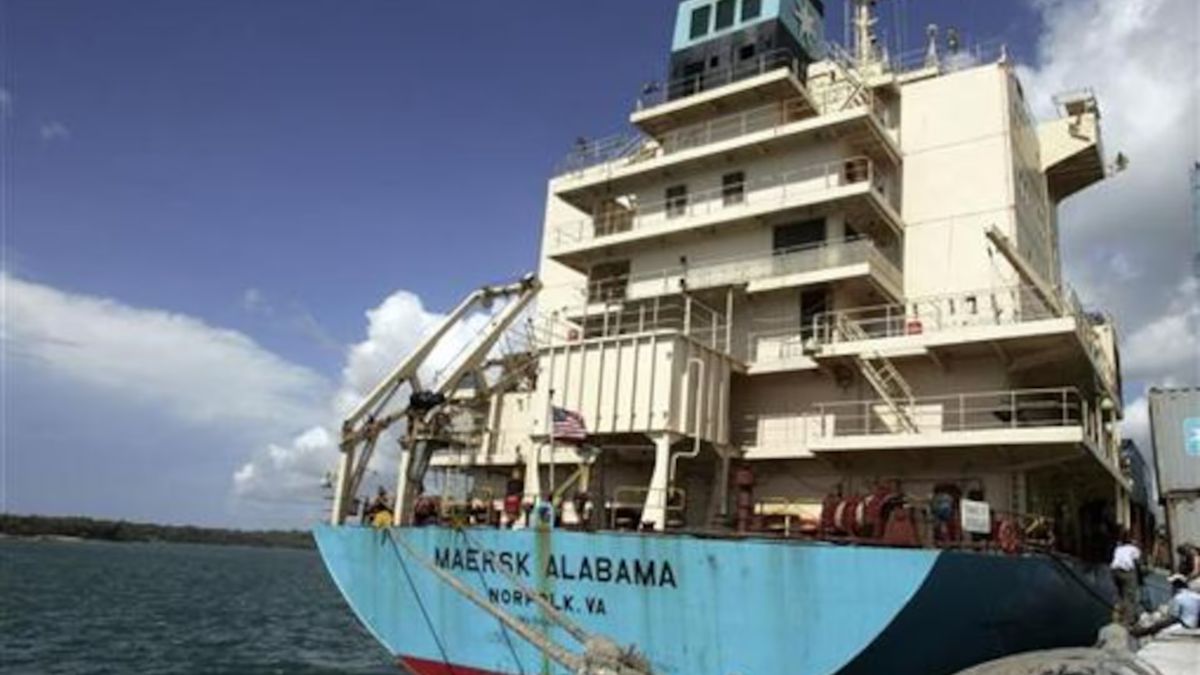Several important events took place on April 8. One of them is the hijacking of the US-flagged cargo ship Maersk Alabama in 2009. This event constituted the first instance in approximately two centuries wherein a maritime vessel bearing the American flag was subjected to seizure by pirate forces.
If you are a history geek who loves to learn about important events from the past, Firstpost Explainers’ ongoing series, History Today will be your one-stop destination to explore key events.
In 1992, tennis legend Arthur Ashe announced that he had Aids. This created shock waves not just among the sports world but the world in general.
Here are some of the events that took place on this day across the world.
Somali pirates hijack Maersk Alabama ship
It was on April 8, 2009, that MV Maersk Alabama was hijacked by the pirates off the coast of Somalia. This incident drew attention to the problem of piracy, often considered to be a thing of the past. The last US-flagged ship was attacked by pirates in the 1820s.
The early 2000s was a time when piracy was surging in Somalia due to lack of policing in its territorial waters and instability in the country. The Maersk Alabama had received a warning from the United States government a day prior to the attack to stay at least 600 miles off the Somalia coastline. However, Captain Richard Phillips opted to maintain a distance of approximately 240 miles, a decision subsequently subject to criticism from members of his crew.
On April 8, a skiff containing four armed pirates approached the vessel, prompting the crew to initiate established security protocols. Despite efforts by Chief Engineer Mike Perry to impede the pirates’ approach, they successfully boarded the ship and took Captain Phillips hostage. Following an altercation during which one pirate sustained injuries, the remaining three pirates departed in a lifeboat, taking Captain Phillips with them as a potential bargaining asset.
The US Navy responded swiftly, deploying the USS Bainbridge, USS Boxer, and USS Halyburton to the scene. Negotiations between the US military and the pirates lasted for several days. On April 12, 2009, US Navy Seal snipers, positioned on the USS Bainbridge, executed a precision rescue mission. They successfully eliminated three of the pirates with simultaneous headshots while the fourth pirate, Abduwali Muse, was captured. He was later sentenced to 33 years in prison in the US. Captain Phillips was rescued unharmed.
Tennis player Arthur Ashe announced he has Aids
On this day in 1992, tennis star Arthur Ashe shocked the world with his announcement that he had contracted Aids, apparently from a blood transfusion. He further stated that he had known about the condition for more than three years, reported the New York Times.
The former United States Open and Wimbledon champion addressed a press conference on April 8, to publicly inform the world after a newspaper began to investigate rumours about his health. He was accompanied by his wife Jeanne Moutoussamy-Ashe, Mayor David N Dinkins, a close friend, three physicians, and his attorney in Manhattan.
During the conference, he disclosed that the diagnosis of the disease was conveyed to him by medical professionals subsequent to his brain surgery in September 1988. The surgery was performed in an effort to determine the cause of a sudden paralysis in one arm. A biopsy revealed the presence of toxoplasmosis, a parasitic infection that often indicates an Aids infection. Blood tests confirmed Ashe was infected with HIV, the virus that causes Aids .
Despite his declining health, Ashe dedicated his remaining years to public health activism. He founded the Arthur Ashe Foundation for the Defeat of Aids, using his platform to fight the stigma associated with the disease. He passed away from Aids-related pneumonia on February 6, 1993, at just 49 years old.
This Day, That Year
In 2013, the first female prime minister Margaret Thatcher passed away.
In 1973, Pablo Picasso, one of the most influential artists, died in France.
Jawaharlal Nehru concluded the Delhi Pact with Liaqat Ali Khan to provide safe passage for refugees displaced after the two countries severed relations in December 1949.
)